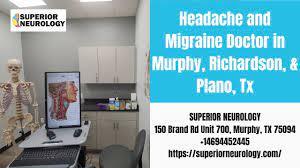Don't wanna be here? Send us removal request.
Text
Know More About Neurological Stroke Language Disorders!
With the aid of language, we are able to communicate our thoughts and emotions. If someone has a stroke on their brain or loses certain parts in this process, they may experience problems when using it for everyday activities like speaking clearly because some regions become harder than others after damages have been done to them physically by an event such as one where there would be loss territory due too many strokes over time which can lead towards difficulties communicating via speech. Among other things affected include movement capabilities among more severe cases.

The consequences of a stroke can be devastating. Patients may have difficulty speaking, reading or writing due to language disorders such as Alexia (alexia), Aphasia and Agraphia which affect their ability in articulate words; numbers also become difficult with Acalculia thrown into the mix for good measure!
Understanding the types of language disorders post-stroke
The damage to one's brain following stroke can lead not only in lost language skills, but also other aspects such as automation and math. One common symptom of a person who has experienced this trauma is an inability or decreased use for certain types/forms of verbal instruction like storytelling which leads them down the path towards complete confusion about what it means when you say something out loud! Below are the types:
Aphasia
Some people develop language loss after having a stroke. It can happen in various ways, such as partial or even total comprehension of speech and written material not being able to understand what they're reading without help from someone else who knows better than you do!
Alexia
The disconnection syndrome is a rare condition that can cause problems with reading. It's also known as text blindness or word blindness, but it’s very different from dyslexia because those ailments affect the ability to recognize words rather than being able read them fluently.
Agraphia
When writing, the brain is focused on what you are putting down paper. However when it comes to spelling or understanding words there can be issues due in part from not using enough concentration when trying make sense of something written by someone else who may have confusion about their meaning too!
Acalculia
The patient is unable to perform any mathematical calculations due the syndrome. This includes simple addition, subtraction and numbers as well columns in a math equation for instance.
Language recovery
Although the process of recovery from aphasia can be difficult, slow and sometimes even fail to produce desired results; it is still worth trying. Rehabilitation sessions with the help of Neurologist in Murphy are necessary in order for patients with language impairments not only avoid depression or frustration but also help them on their way towards achieving goals that they set before starting therapy!
The doctor's tone of voice should be professional and comforting as they communicate with their patient. The simplest words like "yes" or “no," hand gestures, nodding can help address the basic needs for this brave individual who has suffered from aphasia due to brain damage.
Be patient and try to connect with the person emotionally.
The daily routine is a great way to stay productive and keep your mind sharp. The homely environment can do wonders for you; not only will it help with learning new words, but also making sure that everything has its place makes life easier!
If you want to sound like a native speaker, it is important that the patient repeats words until they have perfect pronunciation.
Remember that not all patients are able to talk, so it's important for you keep a pad of paper handy and give them the opportunity write their thoughts down.
To stay motivated and stimulate the brain, one should have friends or family who are supportive. There is no set process for everyone to go through as every person deals with their illness differently which means that it's important you approach this diagnosis accordingly!
Early therapy may be the key to long-term success for stroke patients. When they return home, it's important that you continue with your regular appointments and tests so we can monitor how much improvement has occurred since treatment ended or if there are any new problems developing on top of old ones!
In case you have a concern or query you can always consult Superior Neurology & get answer to your questions!
Superior Neurology
150 Brand Rd Unit 700, Murphy, TX 75094
469–445–2445
https://superiorneurology.com/
1 note
·
View note